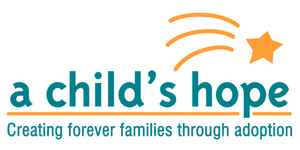Pregnancy can also bring its own set of challenges, especially when it comes to eating. Many women experience nausea or “morning sickness” and cravings, making it difficult to maintain a healthy diet. However, eating well is crucial for both you and your baby.
Weight Gain During Pregnancy
All women gain weight during pregnancy, and those expecting multiples may gain even more. Keeping snacks handy can help stave off nausea and hunger pangs. Many pregnant women find that saltine crackers and wheat thins help keep their blood sugar levels stable.
How much weight you should gain depends on your pre-pregnancy weight. The American Pregnancy Association provides guidelines for weight gain during pregnancy:
| Pre-Pregnancy Weight | Recommended Weight Gain |
| Underweight | 28-40 pounds |
| Normal weight | 25-35 pounds |
| Overweight | 15-25 pounds |
| Obese | 11-20 pounds |
The Mayo Clinic also offers detailed guidelines:
- Underweight (BMI less than 18.5): Gain 28-40 pounds
- Normal weight (BMI 18.5-24.9): Gain 25-35 pounds
- Overweight (BMI 25-29.9): Gain 15-25 pounds
- Obese (BMI 30 or higher): Gain 11-20 pounds if carrying one baby. For multiples, the recommended weight gain is 25-42 pounds
Most women gain 2-4 pounds during the first trimester (12 weeks) and then about a pound a week thereafter. Larger weight gains typically occur after 20 weeks, directly related to your baby’s growth.
Nutritional Needs
It’s important not to fast or go on highly restrictive diets during pregnancy. Your baby needs sufficient iron to grow, and it’s not uncommon for pregnant women to be iron deficient and require iron infusions.
To ensure you’re getting enough iron, include these foods in your diet:
- Vegetables: Carrots, sweet potatoes, pumpkin, spinach, tomatoes, red and green peppers, Swiss chard, and peas.
- Fruits: Apples, citrus fruits (oranges, lemons), bananas, kiwi, watermelon, and berries. Avoid pineapple, grapes, and papaya.
- Proteins: Seafood, red meat, and eggs.
Monitoring Your Weight
Your doctor will weigh you at every prenatal visit. It’s important to discuss your weight gain and ensure you’re within the recommended guidelines. Gaining too much weight can also pose problems during pregnancy, so be mindful of your diet. Remember, your baby is eating everything you eat!
Sources: American Pregnancy Association and Mayor Clinic
Contact A Child’s Hope
This guide, provided by A Child’s Hope adoption agency in North Carolina, emphasizes the importance of early detection and proper prenatal care for both maternal and infant health. If you suspect you might be pregnant, don’t hesitate to take a test and seek medical advice, or contact the agency for personalized care and support. TEXT PREGNANT to 919-971-4396, we are happy to talk to you confidentially.
About E. Parker Herring
About E. Parker Herring: An attorney and mother of three children, Parker has a deep respect and understanding of family law and the adoption process (for which she’s adopted two children of her own). She is the founder and director of A Child’s Hope, a North Carolina licensed adoption agency located in Raleigh that focuses on matching birth mothers and families looking to adopt. A Child’s Hope has placed 470 children since 2000 and is the only North Carolina domestic adoption agency directed by an attorney. For a confidential adoption counselor, TEXT PREGNANT to 919-971-4396.
